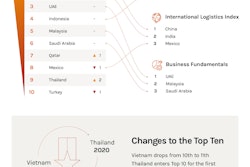
COVID-19 has disrupted supply chains worldwide, causing unprecedented uncertainty.
To get a clearer view of how suppliers are faring, RapidRatings conducted a global survey in March; receiving over thirteen hundred responses from private companies worldwide across most industries including metals, chemicals, textiles and services. Most respondents are from countries most impacted by the crisis (Italy, China, South Korea and Japan) as well as from Europe and the U.S., representing frontline insights on supplier business continuity measures and anticipated disruptions to global supply chains as the pandemic unfolds.
While the majority of companies (62%) have a pandemic response policy, very few are positioned to maintain full productivity under “social distancing” guidelines.
Only 29% of companies can continue to be fully operational while working from home, while 57% are only partially operational. Small businesses ($10M - $100M) are bearing the brunt of the work from home disruption, with 76% not able to continue to operate at full capacity. Not surprisingly, one third of respondents have already experienced a supplier disruptions in their own supply chains. Of those companies which have already closed down facilities, 42% are not expecting to open them again for another 2 to 4 weeks and 15% for at least another month.
Unsurprisingly, China is particularly hard hit, with 40% of companies surveyed in that region closing facilities. In the U.S., widespread policies requiring lower inventory levels have increased concerns regarding the length of time to fully recover.
The majority (59%) of U.S. companies respond they would not be able to continue shipments for longer than 2 weeks after closing. Globally, companies are only slightly better positioned to deliver shipments, with 47% anticipating disruption within two weeks of factory closure.
COVID-19’s impacts on supply chain are just starting to be felt. Despite business continuity measures in place, companies expect significant impacts on their ability to deliver in the foreseeable future.
Resource Center 2 The key findings of the RapidRatings survey are:
• 47% of companies will not be able to continue shipments within 2 weeks of closing a facility. This number increases to 59% for North American companies
• Only 29% of companies could continue to be fully operational while working from home. 57% could partially continue, while 14% could not continue o For small businesses ($10M - $100M), 76% could not continue to fully operate
• 32% of private companies surveyed have already experienced supplier disruptions of their own
• 42% of companies who have closed are not expecting to open facilities again for another 2 to 4 weeks and 15% are not expecting to open facilities for more than 4 weeks
• In China, 40% of companies are closing facilities. Another 8% of companies expect to close facilities within the next 3 months
• 64% of companies have a pandemic response policy and 68% a committee or working group
• 79% of companies have enacted travel restrictions
• 85% of companies had some measure of visibility into their supply chains
• 27% of companies have experienced issues acquiring masks or cleaning supplies














![Pros To Know 2026 [color]](https://img.sdcexec.com/mindful/acbm/workspaces/default/uploads/2025/08/prostoknow-2026-color.mduFvhpgMk.png?ar=16%3A9&auto=format%2Ccompress&bg=fff&fill-color=fff&fit=fill&h=135&q=70&w=240)

